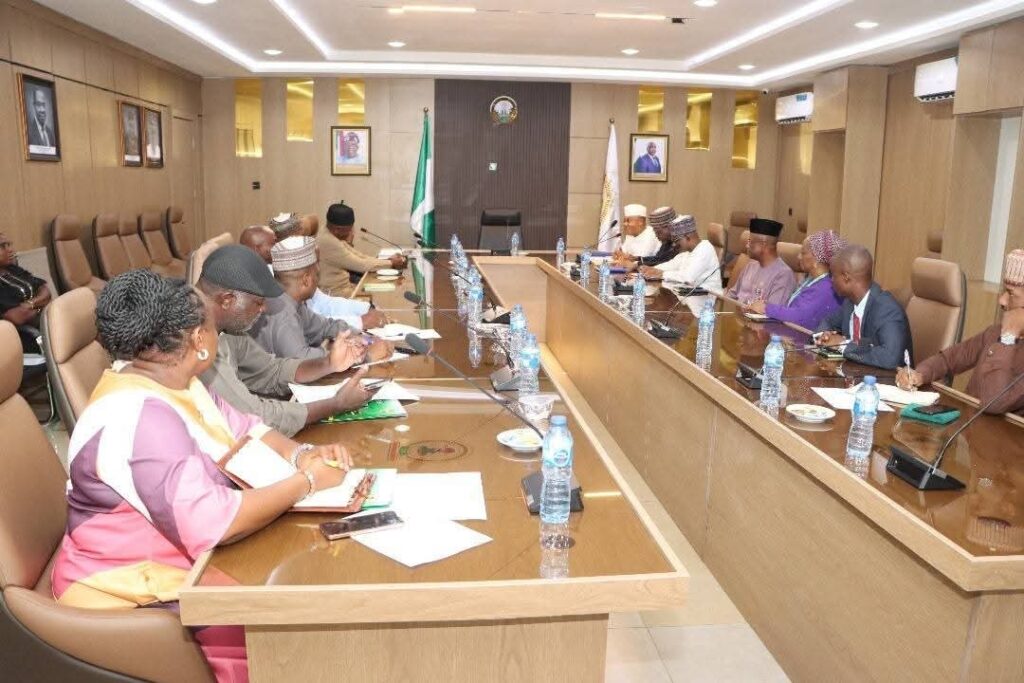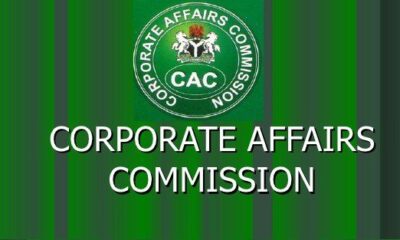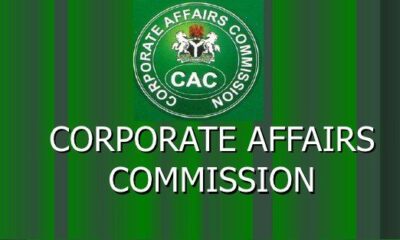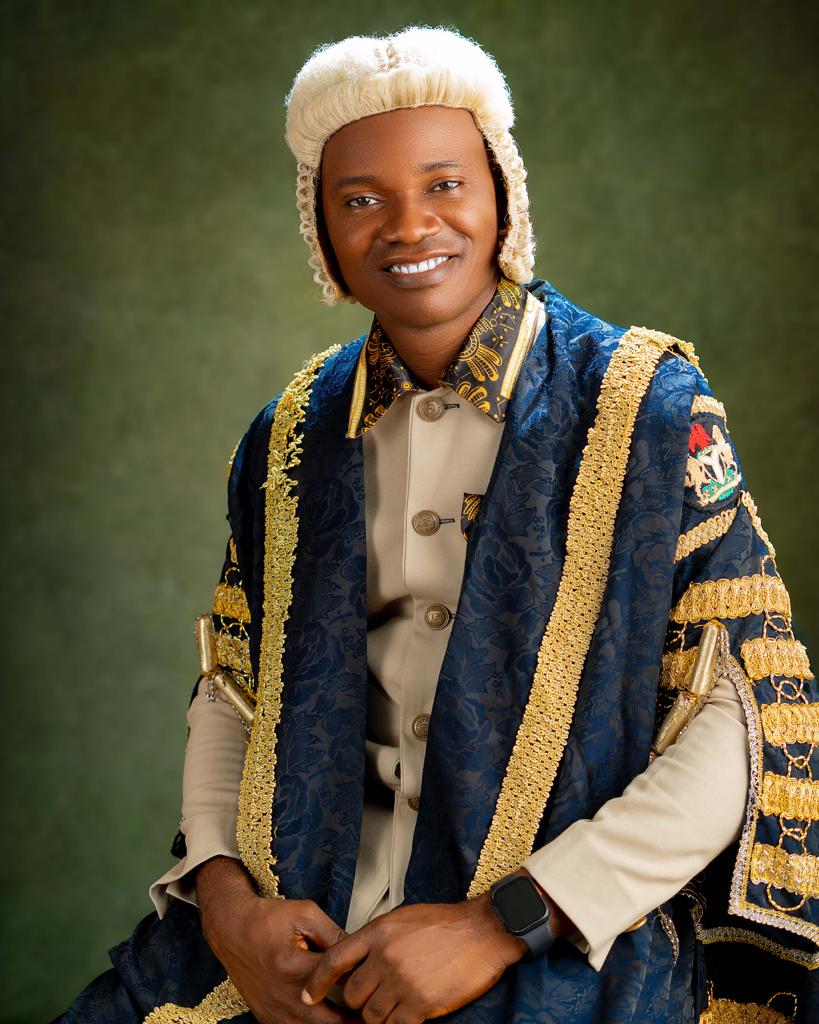CAMPUS REPORTS
FG Introduces One-Year Training Mandatory for Graduates Before NYSC

The Council for the Regulation of Engineering in Nigeria (COREN) has announced the reintroduction of a compulsory one-year post-graduation engineering residency programme for all graduates of engineering from universities and polytechnics across the country.
President of the council, Sadiq Abubakar, disclosed this at a press briefing ahead of the 33rd Engineering Assembly scheduled to hold between July 15 and 17, 2025, on Monday in Abuja.
Themed “Advancing Quality Engineering Services and Businesses in Nigeria, Professional Compliance and Remuneration,” the annual assembly will bring together over ten million practitioners, including engineers, technologists, technicians, craftsmen, and artisans, to deliberate on pressing issues within the profession.
Abubakar said the revived programme, initially known as the Supervised Industrial Training Scheme in Engineering, will now run as the Engineering Residency Programme to build practical competence among engineering graduates before their mandatory National Youth Service Corps year.
According to him, the two-year post-graduation pathway aligns with international standards, forming part of Nigeria’s Mutual Recognition Agreement under the International Engineering Alliance. Nigeria joined the Washington Accord as a provisional signatory in 2023, making it the second African nation to achieve that status.
He also noted that the mandatory programme aligns with the standard practice in other regulated professions such as law, medicine, and pharmacy.
Abubakar said, “In response to the federal government, the current Federal Government administration’s aspiration to be able to develop hands-on experience for our youth in this country, COREN is resuscitating what we started about 40 years ago, the supervised industrial engineering training scheme, what we call CITSE. We have repackaged it and we now give it a new name, called the Engineering Residency Programme. COREN is happy to inform everybody in this country that our graduates with degrees and HNDs from universities and polytechnics will soon align with the global practice.
“After graduation, our engineering graduates will now have to undergo mandatory one-year residency in their area of specialisation to be able to develop the competence, the proficiency and the hands-on experience that will qualify them after graduation and certification from the residency to go for NYSC one year again in the relevant area of their speciality and competence.
“These two years of residency and NYSC probably posting in engineering organisations will amount to part of the qualification for any engineer with a degree qualification or HND qualification to be able to register with COREN as an engineer or as a technologist and certified so that they can practise anywhere in this world and they can be regulated under any jurisdiction whether in Nigeria or any part of the globe. This is what COREN has already signed in what we call MRA, mutual recognition agreement with our jurisdiction in Europe, in Asia, in the Americas, under the International Engineering Alliance.”
He added that the council is working with government stakeholders to provide a monthly stipend of N75,000 for each graduate, with a task force already inaugurated to develop a sustainable funding structure.
“The engineering residency program is one year. It’s going to be mandatory but it is not new to engineering. I am sure you know it has been done in the medical field, it has been done in the legal field, and it has been done in the pharmaceutical field.
“We started it, but our challenge was a lack of funding. For almost 40 years, we have been doing it. And like somebody said, I think that’s part of your query. Are we going to have some stipend? Yes, there’s going to be a stipend around it. We have packaged it, and we have developed a series of documents. We have the manual, and we have about four different documents.
“We are inaugurating the committee, what we call a tax force, that is going to champion the reintroduction of this in this country. And this committee is being chaired by eminent Nigerians, whom we want to engage the government so that we will be able to have the framework for funding, sustainable funding, so that when we come back to it, we will not get out of it again. Because this is one key area that Nigerians must have to be able to compete globally. We recommended N75,000 per candidate but this is still subject to final discussion and approval at the meeting.
“Our aim is to ensure Nigerian-trained engineers can compete and practise globally. We are very confident that we will succeed in this and change the narration. We have signed recognition agreements with jurisdictions in Europe, Asia, and the Americas,” Abubakar noted.
The COREN president further revealed that remuneration for engineering professionals will form a central part of discussions at the upcoming assembly.
He said the council has just completed a fresh review of its fee structure, known as the Engineering Compensation and Professional Scale Structure.
This development followed the current economic situation and the continued payment of expatriates in foreign currency by construction companies in the country.
He said the updated ECOPASS provides payment structures on an hourly, daily, and monthly basis for engineers, technologists, and technicians, both in the public and private sectors.
“This year’s assembly is going to interrogate specifically the enumeration and the few structures for the engineering professionals vis-à-vis the quality of services rendered and the motivation for all engineering practitioners that serve our great nation. The remuneration could be on an hourly basis, daily or on a monthly basis in the private sector and in the public sector. It would also determine the minimum wage and pay.
“Every profession that licenses and regulates practitioners must define fair pay. Engineering is no exception.
“We are revamping our remuneration standards to tackle quackery and ensure qualified practitioners are well compensated. Often, that is one of the key mandates of COREN to ensure that, as one of you asked, there is no quackery because if you don’t pay a good remuneration, people who are not qualified can easily get into that system and damage the profession,” he said.
COREN also disclosed plans to enforce annual renewal of practising licenses for engineers, which will now require professional development courses under a newly formed Engineering Professional Examination Committee, comprising four engineering bodies: NSE, NATE, NiSET, and NAEC.
In a bid to strengthen quality assurance in engineering education, the council is also collaborating with the National Universities Commission for the joint accreditation of engineering programmes in Nigerian universities, similar to its partnership with NBTE for polytechnics.
Abubakar also confirmed that COREN has received the buy-in of JAMB to begin regulating the admission and enrollment process of engineering students into Nigerian tertiary institutions.
He stated, “Just like medicine, pharmacy, and law, we are now aligning admission quotas and curriculum quality with global benchmarks to produce competent, industry-ready graduates.
“As part of its decentralisation policy, COREN has set up seven regional offices across the country in Enugu, Port Harcourt, Ibadan, Kano, Abuja, Gombe, and Lagos (as a special hub). These regional centres will support the regulation of engineering practices across 11 key sectors, including oil and gas, telecommunications, construction, aviation, maritime, manufacturing, mining, biomedical, and agro-allied industries.
“The council is also leading Nigeria’s engineering input in the National Skills Qualification Framework, certifying training centres and registering artisans to improve quality and safety.”
The COREN boss noted that the Engineering Assembly will feature a review of the past year’s activities, stakeholder dialogues, technical sessions and a special “engineering family forum” involving all recognised professional associations.
He stressed that the council’s latest initiatives are aimed at boosting Nigeria’s engineering workforce and equipping them to compete globally.
“The residency programme, the revised ECOPASS, and our accreditation reforms are key milestones that will reposition Nigerian engineering,” he added.
Discover more from Asiwaju Media
Subscribe to get the latest posts sent to your email.
-

 POLITICS3 days ago
POLITICS3 days agoChinedu Ogah Decamps from APC to ADC, Joins Coalition—Video Claims Surface Online
-

 NEWS5 days ago
NEWS5 days agoNigerian Internet Fraudster Ehiremen Aigbokhan Accused of Stealing ₦460 Million Meant for Trump Inauguration
-

 POLITICS5 days ago
POLITICS5 days agoAmaechi Wife Stole N4B Every Month, Says Wike
-

 NEWS4 days ago
NEWS4 days agoEbonyi Village Lights Up with Self-Funded Electrification , Plans Road Construction
-

 POLITICS5 days ago
POLITICS5 days agoADC Targets Five Governors as More PDP, APC Leaders Join Opposition Coalition
-

 CAMPUS REPORTS7 days ago
CAMPUS REPORTS7 days agoAbandoned Newborn Sparks Outrage in Ikwo Community Near FUNAI Campus
-

 POLITICS4 days ago
POLITICS4 days agoADC Ebonyi Welcomes Massive Influx of New Members
-

 FACT-CHECKS/INVESTIGATION5 days ago
FACT-CHECKS/INVESTIGATION5 days agoTroops Neutralize Terrorists In Borno, Recovers IEDs, Weapons
-

 POLITICS5 days ago
POLITICS5 days agoEx-Jigawa Governor Lamido Says He’ll Support Peter Obi In 2027 If Coalition Picks Him
-

 NEWS5 days ago
NEWS5 days agoNigerian Man Captured Fighting For Russia After Serving Five Months On Battlefield
-

 SPORTS4 days ago
SPORTS4 days agoNeymar And Bruna Biancardi Welcome 4th Child Into Their Growing Family
-

 FACT-CHECKS/INVESTIGATION5 days ago
FACT-CHECKS/INVESTIGATION5 days agoFBI Targets Assets of Lagos Suspect Linked to Trump Inauguration Crypto Scam




























